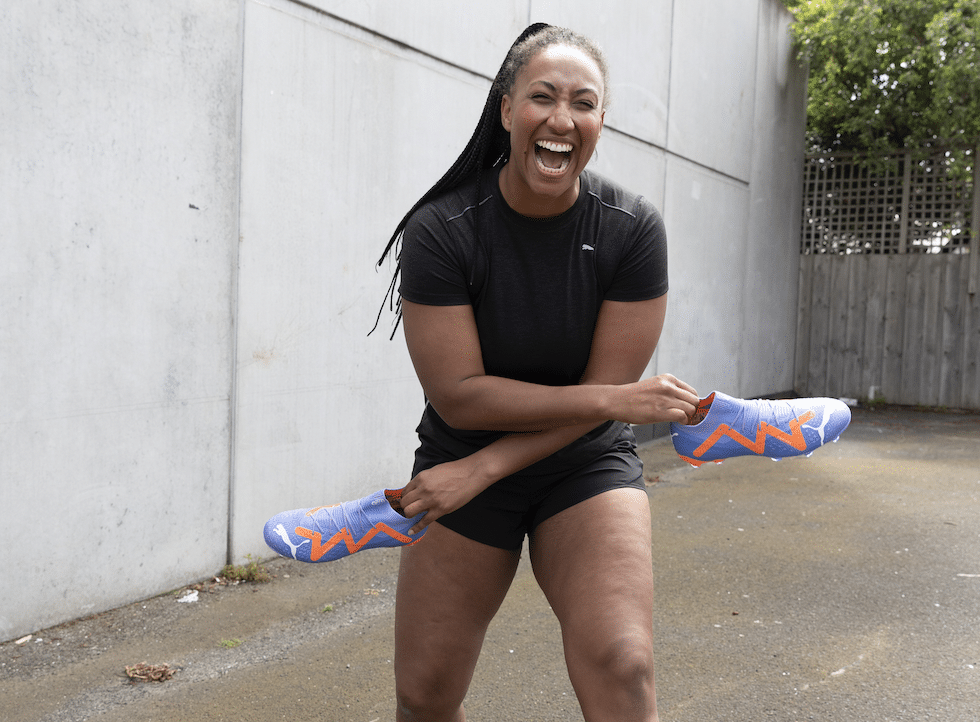There are significant benefits to the community and the economy that come from elevating women’s sport. That’s why Women’s Agenda is working again with PUMA on the 2023 PUMA Accelerator, and why we’re calling on aspiring female athletes across Oceania to apply.
This year is set to be one of the biggest on record for women’s sport in Australia and New Zealand, with the Women’s World Cup expecting to attract 1.2 billion viewers internationally and 1.5 million attendees.
It comes as national competitions for women’s sports are also expanding, including the NRLW, which will expand from six to ten teams, following an expansion to 18 teams in the AFLW in 2022.
Player pay is also moving upward with more professional opportunities now open to women in sport. AFLW players received a 94 per cent pay rise in 2022. A new agreement for NRLW players will see pay rising by almost 50 per cent by 2027, with new provisions also for pregnancy and parental leave. Professional netballers negotiated a 22 per cent increase in 2021, with more to come.
Participation is also up, with more women and girls getting involved. AFL reported 2540 girls’ and women’s community football teams in 2022, a total of 69,829 players, with 12.1 female players in 2022 for every one player in 2010. Netball Australia saw a nine per cent increase in registration across their junior and senior competitions in 2022, compared to 2019, while 300,000 women and girls participate annually in netball in New Zealand.
There is rich diversity in these competitions and pride in bringing your full self into the game. As NAB Tanya Hosch, Executive General Manager for Inclusion and Social Policy recently told Women’s Agenda, one of the strengths of the AFLW competition is in how players, coaches and members from the wider football industry are “proud to embrace their identities and are open to sharing this with the league and its fans.” This has incredible flow-on impacts for kids and anyone who might be struggling with their identity – they see representation on the field, themselves on the field, and can find strength and solidarity in the power of expressing who they are.
And fans are loving it, which ultimately brings more money into sport through sponsorships, merchandise and game tickets. Fans are flocking to stands to see women play, they’re following on from home, and they’re celebrating the wins, as well as all the other big moments that come in sport.
Women’s sport is big business. It’s good business – given the documented evidence on the flow-on impacts to the community, in terms of the health and participation that lifts women’s sport and the trusted role models it creates. And it’s a fast-growing industry that’s increasingly opening more and more well-paid career opportunities for women.
The next generation of female athletes has a lot to look forward to.
But this generation also has a lot to navigate. As a fast-growing sector that’s long been dominated by men, there are still plenty of challenges for women, especially with expanded competitions that are aiming to nurture and elevate talent. The pay and job security for female athletes who can go professional is still a long way from that of male athletes, with women often juggling various things alongside their sporting careers like study, full or part-time work, kids, and other caring responsibilities. Women athletes are also facing well-documented challenges around social media use and trolling, sexism and in pushing to dismantle long-held social expectations of what women can and can’t do, especially on a footy field.
Meanwhile, across many sports, much of the research and experience that’s gone into training techniques, injury prevention, career longevity and performance psychology, has focused on men, and a fast game of catch-up is in play to determine where these differ for women.
That’s why we wanted to work with PUMA to support the next generation of female athletes – those with aspirations to join national competitions, play for national teams and make a career in sport.
Over the May and June period, we’re running the 2023 PUMA Accelerator program, aiming to elevate the careers of between 50 and 80 athletes across Oceania.
We ran the first version of the program with PUMA in the second half of 2022, selecting 50 talented athletes from hundreds of nominations to participate. Those who graduated went on to declare that the program gave them more confidence, more tools for navigating contracts, finance and other aspects of their careers, as well as access to a great network of women with similar goals and aspirations.
We’re now calling on applications for the 2023 program that is again free to participate in, occurring over weekly virtual sessions during a two-month period. Those selected to participate will benefit from online workshops with trainers including tennis great Jelena Dokic, sporting physician Dr Rachel Harris, and Nedd Brockmann, who recently completed his epic run across Australia. It will also include learning modules to support women’s sporting careers across areas such as mindset, finance, psychology, resilience, and menstrual health.
The 2023 program is open to emerging athletes aged 16 to 35 who are participating in AFLW, NRLW, soccer, netball, basketball or athletics, and will run from May to July 2023. It’s easy and free to apply. See the form here.


